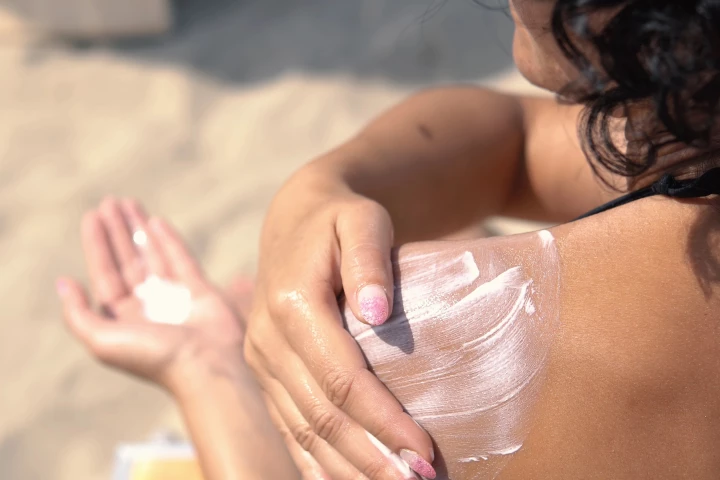Tsinghua University
-
Look up in the sky, it's a bird, it's a plane, it's ... a 20,000 cubic-meter power-generating airship, floating 6,560 ft (2,000 meters) above the ground. Introducing the S2000 stratospheric airborne wind energy system – or the S2000 SAWES.
-
Although sunscreen does help protect our skin from the sun's harmful UV rays, it isn't designed to keep that skin cool. An experimental new sunscreen does that very thing, however, while maintaining an SPF rating of about 50.
-
China's Tsinghua University has scored a world first by demonstrating the inherent safety of the first operating commercial pebble-bed nuclear reactor by shutting off the power and letting the passive systems maintain control of the reactor core.
-
China claims to have brought the world's first Gen IV commercial nuclear reactor online. The Shidao Bay Nuclear Power Plant HTR-PM high-temperature gas-cooled pebble-bed reactor in Shidao Bay, Shandong Province, reportedly went into service this month.
-
Serving multiple useful purposes, brain-computer interfaces (BCIs) usually incorporate scalp-applied or even brain-implanted electrodes. A new less-invasive BCI, however, can simply be stuck in the patient's ear canal as needed.
-
While some assistance is available to individuals who lack the power of speech, verbally communicating with other people can still be challenging. A new face-worn strain sensor could help, as it's able to "read" the wearer's silently mouthed words.
-
Ordinarily, we associate mouthguards with sports such as boxing and football. An experimental new one, however, could allow people who lack the use of their hands to control electronic devices – and it would do so by tracking their bite patterns.
-
Discarded electronics can be a gold mine – literally. Researchers have developed an efficient new way to use graphene to recover gold from electronic waste, without needing any other chemicals or energy.
-
Researchers have developed a new drug cocktail that can convert cells into totipotent stem cells, the very seeds of life. These cells can differentiate into any cell in the body, potentially bypassing the need for sperm and eggs to grow an organism.
-
As honeybees collect pollen and nectar from flowers, they repeatedly bend and straighten their abdomens – yet with a minimal amount of friction. Scientists have discovered what makes this possible, and it could have applications in human technology.
-
Wearing a big, heavy backpack can get pretty tiring. That's why scientists have developed a pack that's not only claimed to lighten the load on the wearer, but that also uses the motion of that load to generate electricity.
-
Open wounds on the stomach wall can be serious if left untreated, sometimes requiring surgery. In the not-too-distant future, though, it's possible that a small robot could bioprint new cells onto such injuries … from inside the body.
Load More











